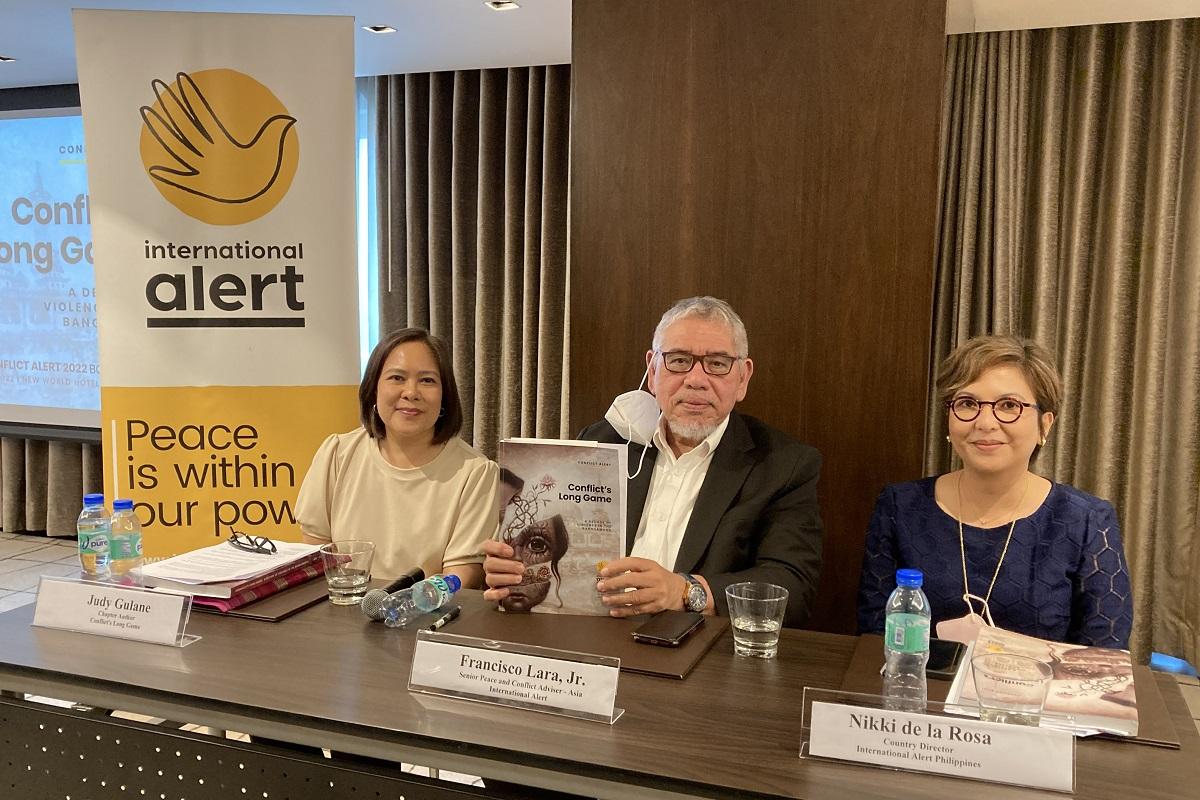Declining violence in Bangsamoro a ‘fragile’ trend, peace org says

Incidents of violence in Bangsamoro have been declining, but it is a fragile trend, peacebuilding organization International Alert Philippines said on Thursday.
During the launch of its book "Conflict’s Long Game: A Decade of Violence in Bangsamoro," the group said its assessment of the region from 2011 to 2020 showed a decrease in deaths and displacements.
“The numbers declined from 2018 onwards, but again we emphasize that 2021 numbers has not come back to pre-2015 levels so it's still unsustainable and fragile,” International Alert Philippines director Nikki de la Rosa said.
According to the group's senior peace and conflict adviser Francisco Lara, the conflicts between individuals and families in the region should be also addressed, not only those involving the government and rebels.
“The vertical conflict that has been resolved by the resettlement, by the retirement of rebellion did not affect the level of horizontal violence,” he said.
To completely address violence, Lara said, actions should be taken addressing inter-clan, inter-tribal, inter-ethnic, and inter-identity tensions.
The group said the retirement of rebellion was just replaced by a spike in communal and extremist violence that would transform and extend wars into the future.
While there was a decrease in attacks by violent extremists against the state, the group’s consultant Judy Gulane noted an increase of incidents against indigenous people (IPs) in Bangsamoro.
“They have engaged in land conflicts involving the IPs, which have resulted in large displacements of families. This is a growing trend,” Gulane said.
Among the issues causing horizontal violence in the region were land ownership, clan rivalries, religious identities, and political loyalties.
According to Lara, based on the 10-year study, the decline in violence in Bangsamoro can be attributed more to the imposition of martial law amid the Marawi siege than to the peacebuilding efforts.
“That’s the reason why when we look at the causes of the decline, we said it had more to do with military rule than it had to do with peacebuilding initiatives by different groups,” he said.
While acknowledging efforts in ending rebellion-related violence and establishment of Bangsamoro government, the group suggested addressing the following issues to resolve violence in the region:
- low human development
- creation of laws to cover land-based disputes and other resource-related issues
- delivery of land restitution and redistribution
- new strategies to address illegal drugs and illicit firearms trade
- better access to data on gender violence including a response and welfare network led by women
- online culture of inclusivity to counter hate speech, racial slurs, and fake news
- expanding democratic participation and governance
- strengthening access to justice and welfare
The book "Conflict’s Long Game" presents highlights of violent conflict in the region from 2011 to 2020, the group said.
It tackles multicausal violence, and conflict strings; land and other resource conflicts; shadow economies; violent extremism, violence against women and children; social media and polarization; and political and economic settlements.
At the event, the group also launched Conflict Alert, a database system with information on conflicts in the Philippines. — BM, GMA News



